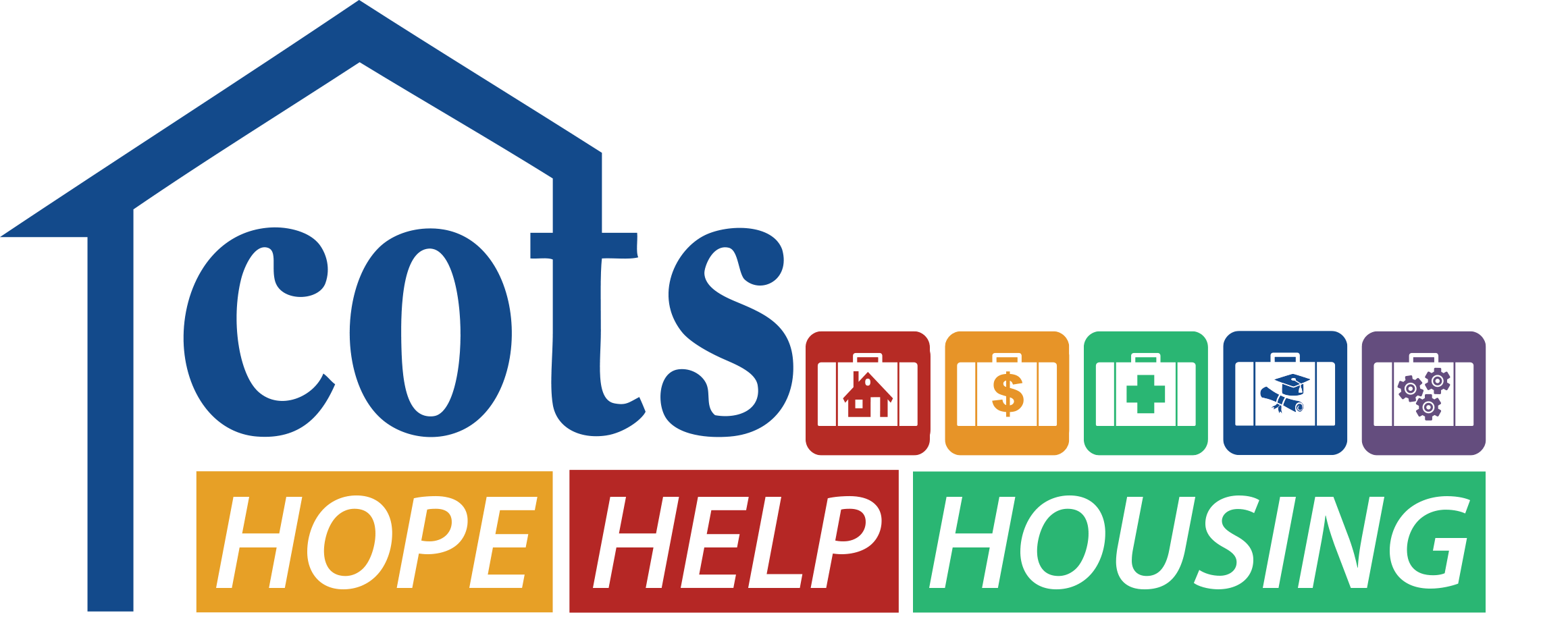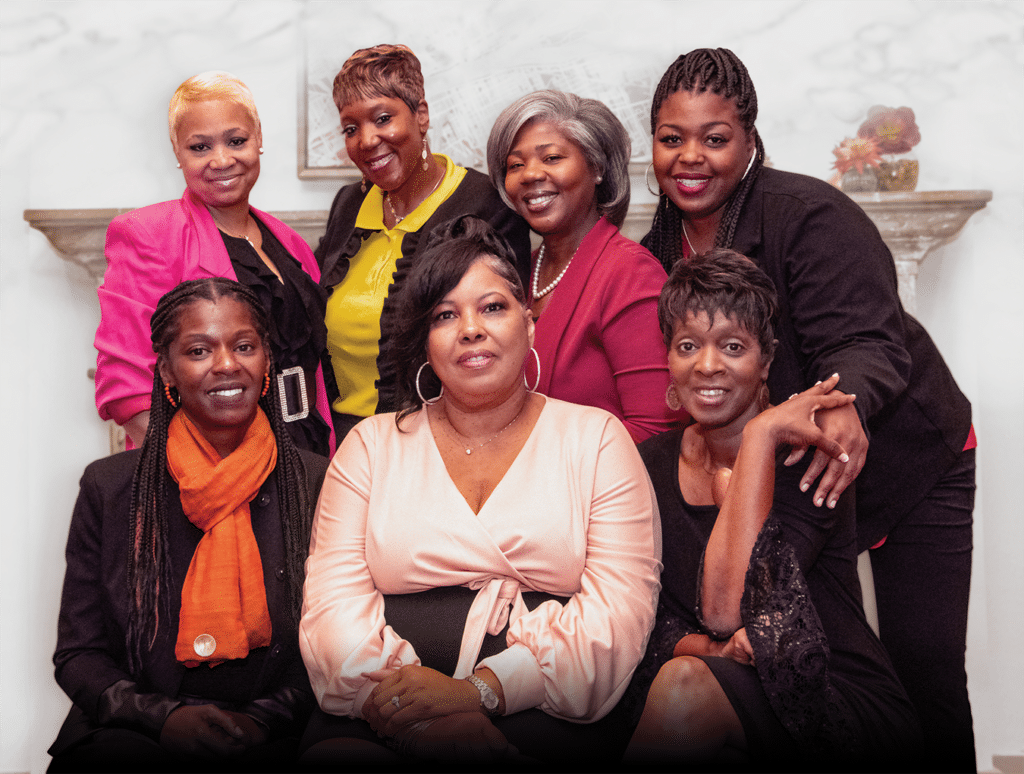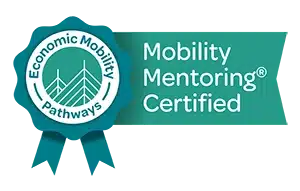Are you familiar with the phrase ‘teamwork makes the dream work’? Here at COTS, it’s not just a motivational sentence, it is a way of life. There are many components that make up healthy and thriving families, and our vibrant and skilled Passport Engagement Team plays a key role in supporting our theory of change. The Passport Engagement Team collaborates with our families to help them realize their goals and dreams, while giving them the tools families need to end cycles of instability.
The Passport Engagement Team includes the incredible talents of LaTonia Walker, Director of Coaching and Engagement, Elaine Matthews, Director of Employment and Training, Denise Godfrey, Youth Engagement Coach, Tiffany Gist, Financial Coach, Latris Pointer, Children’s Engagement Coach, Shanithia Jhons, Mobility Coach, and LaQuaia Thomas, Mobility Coach. In this issue of the Art of Family, we sit down with these remarkable ladies to hear about their experiences and celebrate their dedication to helping families in Detroit.
Let’s start by speaking to the role of coaches and the purpose and benefit of coaching.
LaTonia Walker: Coaching is important to the families that we work with because we are partnering with them. We build a relationship with the families that we’re working with and get to know them and their goals on a personal level.
Tiffany Gist: As a financial coach, I’m an accountability partner. We help clients learn how increase their financial literacy on a sustainable level. I give my clients the tools that they need, such as understanding how to save, creating a budget, and how to understand their credit report. We help them prepare for the next phase of their lives.
Personal accountability is a big part of achieving the goals our families set for themselves. Often, people don’t understand why something that seems routine to many of us can’t be completed or done right away for those who are dealing with instability, trauma, or lack the knowledge to navigate those tasks. Can you share more about that challenge?
Shanithia Jhons: When I first started coaching, I thought that you either want change, or you don’t. That’s not always the case. You have to keep calling them, keep reaching out. Some of our clients need those reminders telling them ‘Come on, you got this. I’m not letting you give up.’
Elaine Matthews: We don’t know what they’ve experienced. Sometimes I may have to put on a coaching hat, a listening hat. A mom hat. I need to build trust. I need to build confidence. They need to know that when you talk to me, it’s here in this moment. I see you.
LaTonia Walker: One of the biggest challenges for our clients is not having family support. In our lives, we could have a challenge and we have family to fall back on to help. Many of our families don’t have that support structure. That’s a big part of what we bring as coaches. And that’s why a lot of them end up looking at us
as family.

Can you enlighten readers on the Passport to Self-SufficiencyTM domains and the mapping tool used with clients?”
LaQuaia Thomas: I describe the mapping tool as a screenshot of where you are in your journey currently. We focus on five domains, which are Housing, Financial, Health and Well-Being, and Education, and Employment. When our families enter the shelter, they start at tier one. Participants move up as they achieve the goals that we set together. For example, with our financial domain, many families come in with no savings account. That’s tier one, and we set that goal right then in that session. The next tier is opening a checking account and knowing your credit score, working to the ultimate end goal of having savings of at least six months and having your credit score 700 or better. As I explain to clients, this is just the screenshot. This is just where you’re at now. When you’re on a journey, you need to know your starting point and where you plan to go.
Latris Pointer: For someone on the outside, it’s easy to say, ‘just get a job.’ They will never understand the barriers our families face, such as lack of childcare, lack of transportation, or the lack of education. As coaches, we take that journey with our participant. We make it happen together.
Denise Godfrey: When I first start working with a youth and they may have had behavioral issues or educational challenges, and then to work with them and see them reciting affirmations, gaining self-confidence, getting help from the learning lab, or simply having a healthy conversation with their parent, as opposed to arguing and being combative. That means I have helped that child succeed. I can see the impact that I have made on that child’s life.



